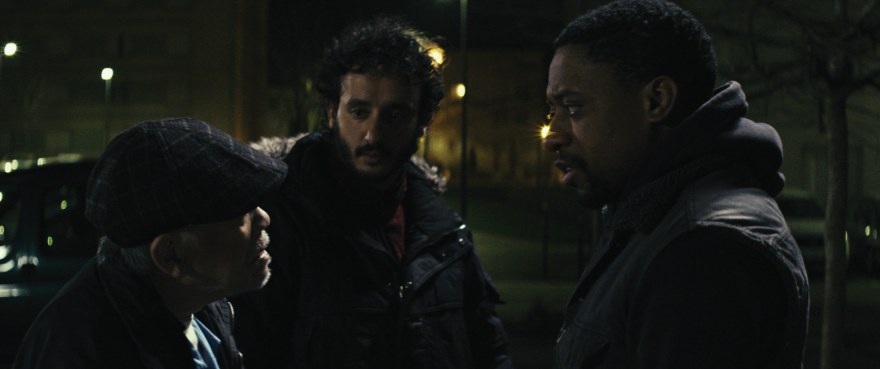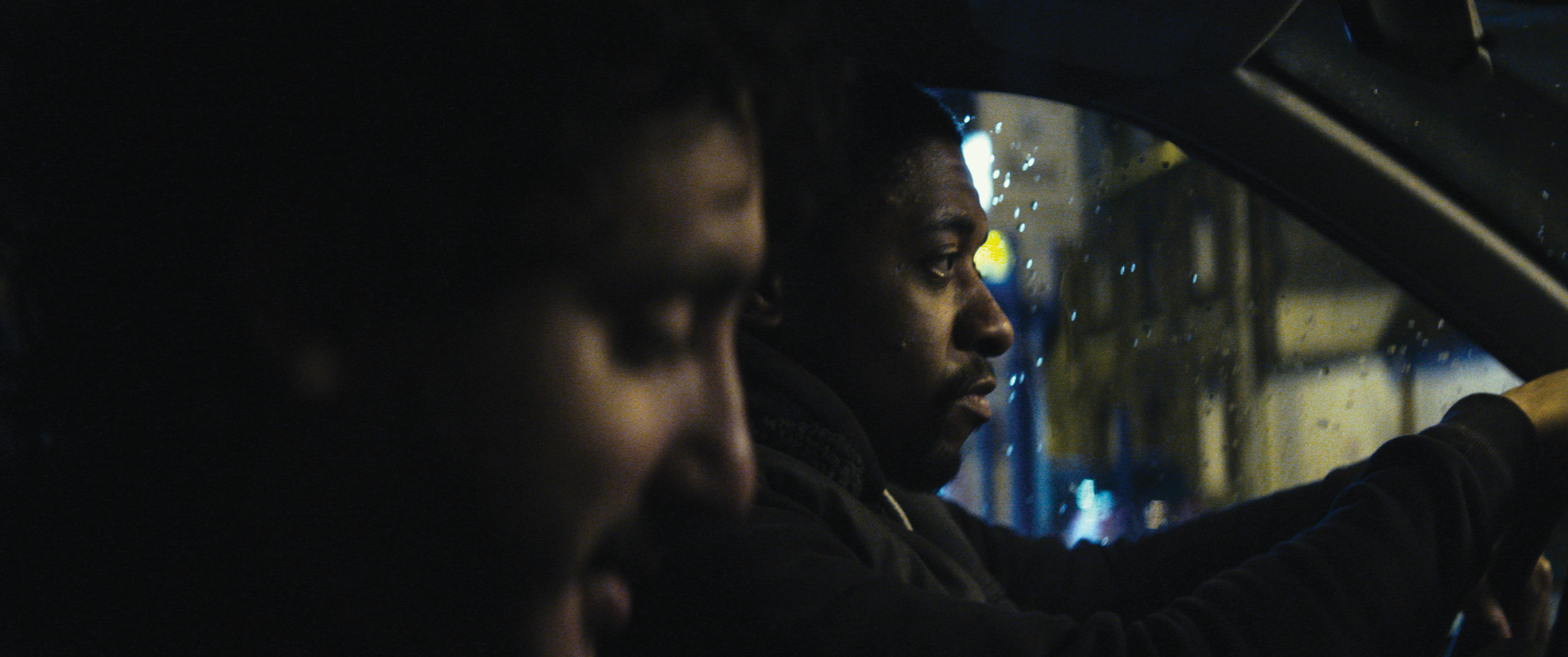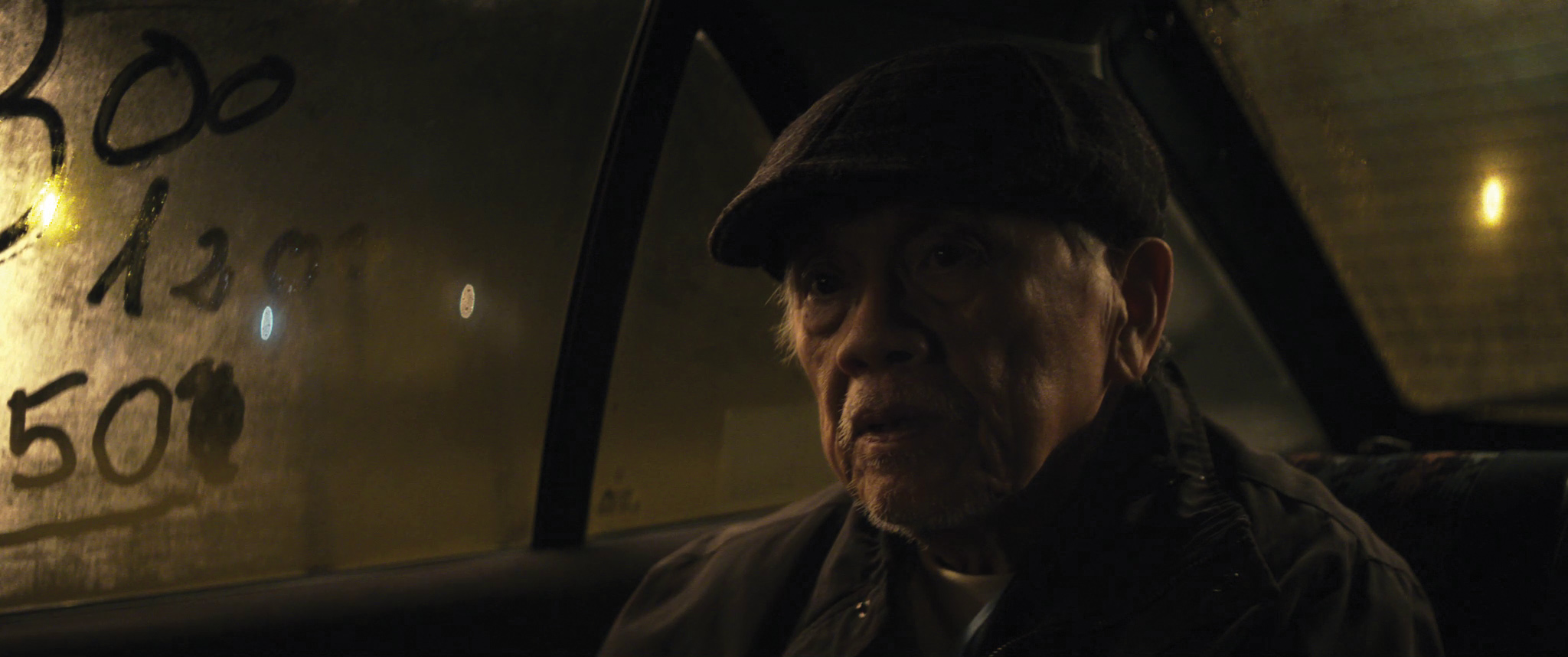Nightcap with Malabar
Interview with Maximilian Badier-Rosenthal, director of Malabar
How did Malabar come about?
The idea came to me when I met Marcel Jacq, the actor in my previous short film Ông Ngoai. He had never acted before. It was pure chance when I passed in front of a cafe on my way to work. At the time, he agreed to play the role of my Vietnamese grandfather. I was very reserved about having Marcel meet the film crew. The cinematographer, Marianne Tardieu, and the producer, Yassine Qnia, were very quick to connect with him, then on the set Mourad and Harrison took care of him. The improbable relationship that developed among the crew really moved me. I think I unconsciously turned it into the accidental meeting between Mourad, Harrison and Marcel’s character in Malabar.
What did you want to explore through the chance nighttime encounter between the two friends and the old man?
In Ông Ngoa I touched on the generational and cultural difference between a grandfather and his grandson of Vietnamese origins. In Malabar, however, I wanted to have a Vietnamese grandfather come face to face with the outside world, just beneath his home, perhaps exploring the same themes but with greater distance, since Harrison and Mourad aren’t related to Marcel. I also like the idea of their meeting leading to a fleeting yet real connection. I took pleasure in developing what brings the characters to the connection.
How did you work with the three main actors in Malabar? What sort of direction did you provide them?
I’ve talked a lot about Marcel Jacq, who I wrote the role for. Unfortunately, he passed away a few months before shooting began. I wasn’t able to find another spirit like his, there wasn’t enough time and the filming schedule of five nights in a row was too harsh for a man of his age with no prior experience. I was extremely lucky to find Hiep Tran Nghia. He’s been in the business, he gave a lot and very quickly understood the role. He’s used to playing the “token Asian”, as he often mentions. I worked mainly on dismantling that sort of mimicry with him. From the earliest writing stages, I had Mourad and Harrison in mind. It was important for me to delineate each of their characters clearly in the script: Harrison is more of a young, innocent, while Mourad is more grounded. We had two read-throughs where we worked on the characters’ emotions in each scene. On the set I loved arranging things with them. On set their acting took on greater scope even though we did very little improvisation.
What sort of reactions or thoughts would you like your film to elicit in viewers?
I can’t predict the viewer’s reaction, but with Malabar, the only thought that comes to mind now is mutual assistance, more mutual assistance, especially now in these chaotic times. I’m thinking particularly about the elderly who are on the margins; it’s tough for them.
What do you think the future holds for short films?
I have no idea about the future of short films. We’ve seen with online festivals that there’s a large audience for them, which is a good sign. Short films could have their own category in on-demand video platforms. Personally, I prefer the exclusive side that short films represent; it affords a lot of freedom and that’s important for young filmmakers and young actors. By “young” I mean with respect to experience or renown, not age.
If we were to go back into lockdown, what cultural or artistic delights would you recommend to alleviate our boredom?
Reading, taking advantage of that free time for reading. And communication, even at a distance. I’m not sure you’d call this sort of pleasure “cultural”, but it’s important to maintain contact with people; it’s what enriches us.
Malabar is being screened as part of National Competition F3.










